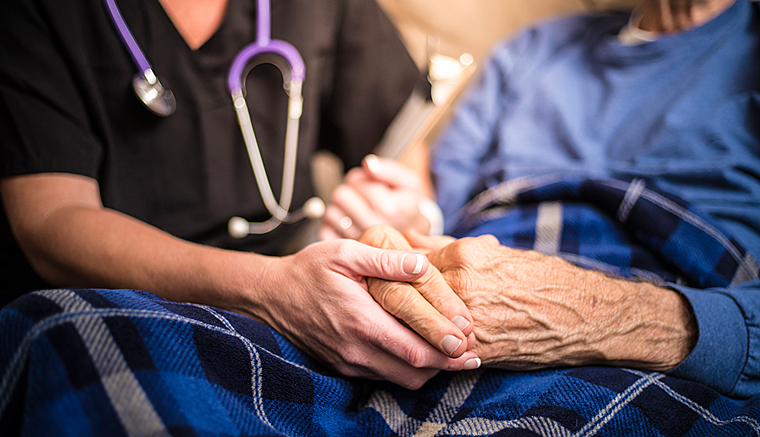
Many of the most moving moments during the last weeks of my father’s life were experiences of hospice. In this age of modern medicine where every effort is used to successfully prolong life, hospice instead focuses patient comfort and dignity.
Prolonging life, even when it comes at the high cost of family fortune and the suffering of feeding tubes, ventilators, blood transfusions, pharmaceutical interventions, surgeries, and hospital confinement, is the natural inclination of most physicians. This is entirely understandable, given the usual desires of loved ones and patients to want to live longer, yet it is a fairly modern development.
Even one hundred years ago, most people died at home. Though hospitals were well-established, the rural nature of American society and the limitations of fighting infection without antibiotics meant that the prolongation of life was often difficult at best. The average lifespan in 1900 was 50 years, which speaks to the number of children and young adults who died of smallpox, pneumonia, influenza and serious accidents. Today, the average lifespan in America is 75 years, an increase of 50%; the fastest growing segment of the population is 85 years old and over. American life spans are now prolonged enough to allow for the widespread development of dementia and Alzheimer’s.
I’m not arguing against long life, but I do suspect that our fixation on longevity is misplaced. Elevating quantity-of-life over quality-of-life reinforces the assumption that longevity is an end unto itself. Pneumonia used to be called “the old man’s friend,” but that view has faded. Chemotherapy and radiation are effective at arresting some cancers, but many recur over time. Technology is assisting failing hearts and lungs, but nobody lives forever.
Hospice, which originated in the 11th century, is not about longevity but about easing the suffering of the dying. In its modern incarnation, it provides equipment and supplies, 24-hour phone nursing assistance, regular day and nighttime nursing care in one’s home, the provision of volunteers as requested, health care aides for washing and maintaining sanitary conditions, procurement (with the aid of a physician) and administration of drugs to alleviate pain or emotional distress, counseling for the caregivers, and bereavement services. Though many people are under the impression that hospice services are only available during the last weeks of life, hospice can be provided for six months or even longer, as the case requires. For those on Medicare, hospice is provided at no cost.
The death of a loved one is traumatic, filled with difficult situations with which most of us are unfamiliar. Caring for the dying is exhausting, emotionally and physically. After just one week of caring for my dying father at home, my back and arms were terribly sore and the entire household was sleep deprived. Simply learning how to change soiled linens while my father was still in bed was an invaluable lesson.
But the greatest gift of hospice was kindness and compassion. Even at 2:30 A.M. the hospice nurse was attentive and gentle, respectful of the situation and willing to talk. That strangers showing up in the middle of the night to alleviate the suffering of my father could be and were so kind helped create a loving atmosphere in which my father could painlessly let go of life. This is something I will always appreciate deeply.
For more information or to make donations, contact Hospice by the Bay.
We should all be so blessed as to spend our final hours surrounded by our loved ones and in a home environment with kind and compassionate assistance from caring professionals.
Dear Mr. Barnett: All of us a Hospice By The Bay thank you for the moving description of your experience with hospice care and its value to patients and families. Your kind words truly touch our hearts. We will share them with our staff. We hope that everyone who could benefit from hospice care or from grief counseling after a loved one’s loss will contact us for support. Our phone number in Sonoma County is (707) 935-7504. Resource information is also available on our website, http://www.hbtb.org. Thank you again for sharing your experience.